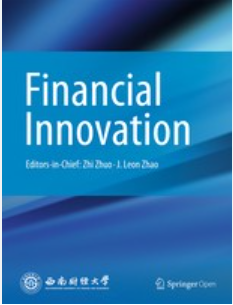美国极端指标对股市有影响吗?国际证据
IF 7.2
1区 经济学
Q1 BUSINESS, FINANCE
引用次数: 0
摘要
我们提出了一个新的预测指标--美国股市日收益率最小值的创新($$\Delta {MIN}^{US}$ )--用于预测国际股市收益率。利用从 1972 年 1 月到 2022 年 7 月这半个多世纪期间 17 个 MSCI 国际股票市场的月度数据,我们发现 $$\Delta {MIN}^{US}$ 对大多数国际股票市场的回报率具有很强的预测能力:$$\Delta {MIN}^{US}$ 对下一个月的股票市场回报率具有负向预测作用。在控制了一些宏观经济预测因素并进行了子样本和面板数据分析后,结果依然稳健,表明 $$\Delta {MIN}^{US}$ 具有显著的预测能力,在国际市场上优于其他变量。值得注意的是,即使在金融动荡时期(如全球金融危机和欧洲主权债务危机),$$\Delta {MIN}^{US}$$ 也表现出卓越的预测能力。面板回归和样本外检验也都支持 $$\Delta {MIN}^{US}$$ 的稳健预测性能。然而,在由 COVID-19 大流行病引发的非金融危机期间,这种预测能力消失了,因为它是由卫生部门而不是金融部门引发的。这些结果为美国极端指标在股市回报预测性方面提供了一个新的视角。本文章由计算机程序翻译,如有差异,请以英文原文为准。
Does the U.S. extreme indicator matter in stock markets? International evidence
We propose a new predictor—the innovation in the daily return minimum in the U.S. stock market ( $$\Delta {MIN}^{US}$$ )—for predicting international stock market returns. Using monthly data for a wide range of 17 MSCI international stock markets during the period spanning over half a century from January 1972 to July 2022, we find that $$\Delta {MIN}^{US}$$ have strong predictive power for returns in most international stock markets: $$\Delta {MIN}^{US}$$ negatively predicts the next-month stock market returns. The results remain robust after controlling for a number of macroeconomic predictors and conducting subsample and panel data analyses, indicating that $$\Delta {MIN}^{US}$$ has significant predictive power and it outperforms other variables in international markets. Notably, $$\Delta {MIN}^{US}$$ demonstrates excellent predictive power even during the periods driven by financial upheavals (e.g., Global Financial Crisis and European Sovereign Debt Crisis). Both panel regressions and out-of-sample tests also support the robust predictive performance of $$\Delta {MIN}^{US}$$ . The predictive power, however, disappears during the non-financial crisis caused by COVID-19 pandemic, which is originated from the health sector rather than the financial sector. The results provide a new perspective on U.S. extreme indicator in stock market return predictability.
求助全文
通过发布文献求助,成功后即可免费获取论文全文。
去求助
来源期刊

Financial Innovation
Economics, Econometrics and Finance-Finance
CiteScore
11.40
自引率
11.90%
发文量
95
审稿时长
5 weeks
期刊介绍:
Financial Innovation (FIN), a Springer OA journal sponsored by Southwestern University of Finance and Economics, serves as a global academic platform for sharing research findings in all aspects of financial innovation during the electronic business era. It facilitates interactions among researchers, policymakers, and practitioners, focusing on new financial instruments, technologies, markets, and institutions. Emphasizing emerging financial products enabled by disruptive technologies, FIN publishes high-quality academic and practical papers. The journal is peer-reviewed, indexed in SSCI, Scopus, Google Scholar, CNKI, CQVIP, and more.
 求助内容:
求助内容: 应助结果提醒方式:
应助结果提醒方式:


